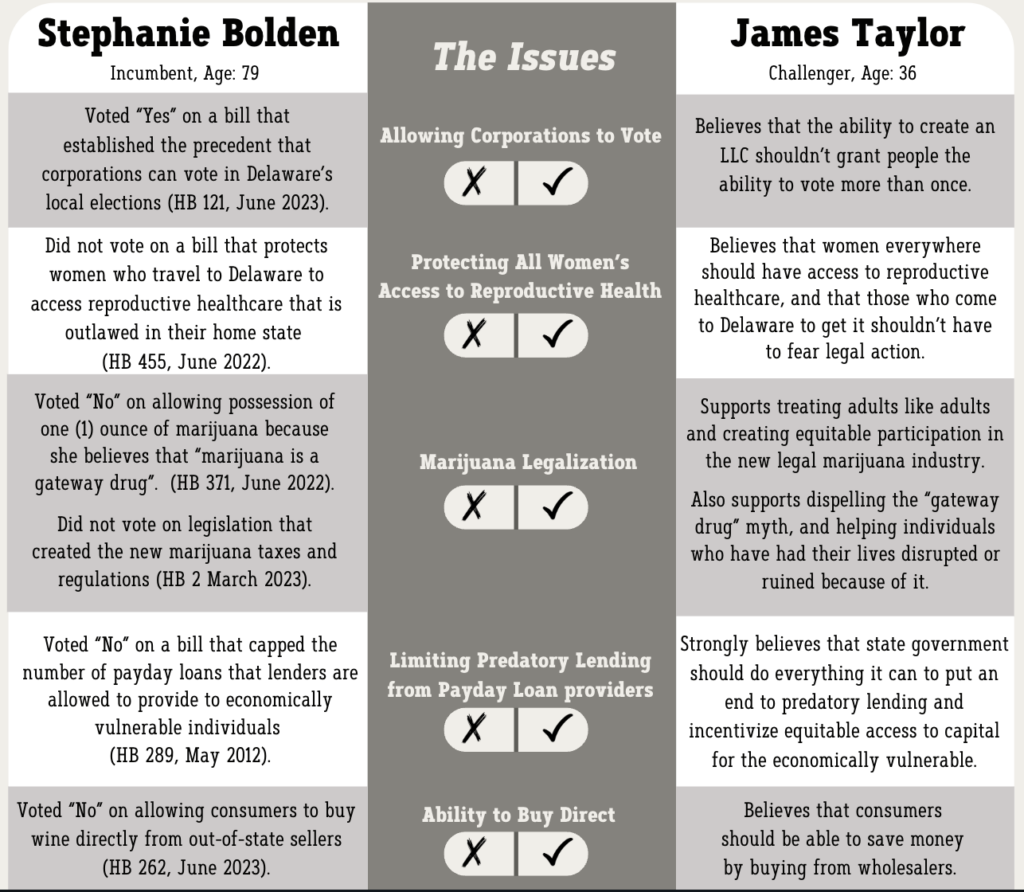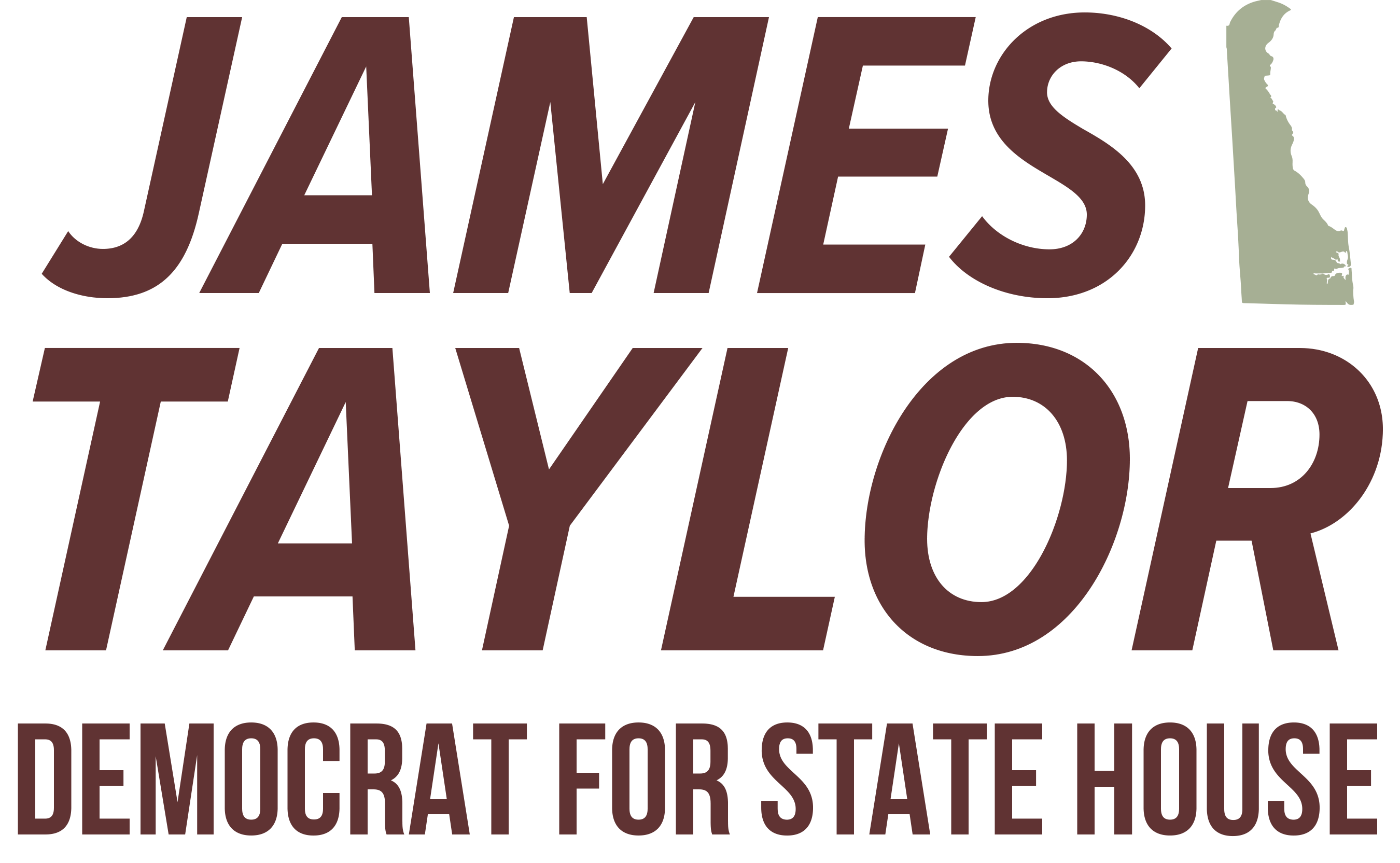Platform

Healthier, Wealthier, and More United
We are at an inflection point in our state’s history. We must make significant and sustainable progress on our most pressing issues in an environment wherein competition for resources is fierce and there are legitimate questions about whether those resources will continue to be available. This means that the 2nd District’s next State Representative will need to be able to help community leaders craft self-sustaining solutions and then locate the funds needed to realize those solutions. It also means that the next State Representative from the 2nd District must be willing and able to use the prestige vested in the office to convene key stakeholder meetings and coordinate the public-private partnerships needed to hasten progress toward building a healthier, wealthier, and more secure district. Under the headings of Healthier, Wealthier, and More Secure are listings of the policy areas I’m focusing on and brief explanations of the community and legislative initiatives I’ve already begun working toward in each.
Healthier
Holistic Public Health
Delawareans can enjoy a quality of life comparable to the world’s blue zones if the government assumes the necessity of its citizenry’s access to a healthy work-life balance, daily exercise, and consumption of fresh, high-quality food. I intend to work with local community leaders and government to ensure that we collectively take advantage of Delaware’s geography and local resources as we eliminate outdated norms and coordinate policies that affect our collective well-being. In keeping with these goals I will work to achieve the following:
- Improvements in Health Education – I will work with local government and non-profit leadership to provide youth and their families with improved resources on nutrition and exercise
- Recognition of a Right to Family Time – I will also pass a resolution acknowledging that all Delawareans have an incontestable right to spend adequate time with their families and loved ones and that the State government must respect, protect, and fulfill that right.
- Stronger Community Centers – I will also pursue legislation that earmarks an annual $3M for community centers providing critical health and wellness services for at-risk populations constituents.
Environmental Justice
Environmental justice means transitioning from a status quo wherein the most vulnerable populations bear the majority of environmental burdens to one where there is a fair allocation of both environmental advantages and burdens. I will work to ensure that environmental justice is done by pursuing the following:
- Increasing Flood Resiliency – In addition to working directly with federal agencies to increase flood mitigation, prevention, and resilience, I will propose legislation that will allow residents living within a floodplain to write off all expenses associated with flood preparedness and recovery as well as qualify for a per event refund of up to $5,000 to cover expenses not covered by flood insurance.
- Increasing DNREC’s Regulatory Powers – I will also pursue legislation that changes DNREC’s regulatory authority from advisory to compulsory so that rigorous remediation and stewardship of Delaware’s soil, water, and air are the law rather than suggestions.
- Increased Green Spaces & Urban Farming – I will work with government and community leaders in the 2nd District to create a Community Gardening Collaborative and I’ll propose that DNREC be allotted an annual budget of $100,000 to support urban farming and greenspace reclamation initiatives through the state.
Gun Violence & Appropriate Policing
We’ve made encouraging progress on gun violence, but not nearly enough for the communities that see the most instances of this senseless violence. Experience has borne out the 2015 CDC reports guidance that “focusing comprehensive wrap-around services to individuals at the highest risk of violent crime involvement” can go a long way toward reducing gun violence. I address the “peer outreach/mentorship, medical care/counseling, educational support, economic assistance, and/or other services” recommended by the report in the Education section of the platform, but these programs must be coupled with strong deterrents for potential offenders, effective rehabilitation for past offenders, and efforts to improve the relationship between law enforcement and the communities they serve. To this end, I will be working to affect the following reforms:
- Full Repeal of the Law Enforcement Bill of Rights – I will pursue fully repealing the outdated and unnecessary Law Enforcement Officers Bill Of Rights legislation.
- Increased Penalties for Illegal Firearms & Gun Violence – I will also propose legislation that increases the minimum sentence for illegal possession of a concealed firearm and possession of an illegal firearm in the commission of a felony.
- Rehabilitative Prisons & Better Reentry Programs – I will work with local community leaders, educational institutions, and non-profits to design better inmate education, workforce training, and re-entry programs, and I will pursue legislation that both expands resources for these programs and reduces sentence time for incarcerated citizens who complete these programs.
- Crisis Response Reform – I will propose legislation that will ensure that paramedics respond, alongside police, to all mental health crisis calls.
Wealthier
Labor & Equitable Economic Development
I come from a family of union members, so I know from firsthand experience what union scale can do for a family’s fortunes. As an economist, I know that even union-scale pay isn’t enough without strong consumer protection policies that help families’ dollars stretch and laws that keep lenders honest and the business environment competitive. To ensure the health of organized labor and level the playing field for the middle class in the 2nd House District, I will work to pass the following policies:
- Local Hire – I will reintroduce the intentionally stalled HB 435, which sought to ensure that all large public works construction projects utilizing state funds would be governed by a Community Workforce Agreement with labor organizations engaged in the construction industry to provide structure and stability and promote efficient completion.
- Expanded Consumer Protection – I will also propose legislation that gives the Office of the Public Advocate oversight of phone and internet rates in the State.
- Access to Capital – I will propose legislation that bars lending institutions from including loans that originated as a result of predatory lending practices from being considered in their underwriting process and incentivizes them to adopt more inclusive underwriting practices.
Affordable Housing
In his recent State of the Union speech, President Biden took a page from my 2022 platform and criticized Big Real Estate and other monopolists using their influence in the market to set unrealistic prices and squeeze middle-class families. Like Joe, I’m committed to ensuring that folks in the 2nd District get a fair price on expenses they shouldn’t have to upend their lives to avoid. I’m also committed to handling blight in the City of Wilmington in a manner that aligns their priorities with their constituent values – and not vice versa. In keeping with this aim I will seek to secure the following housing reforms:
- Rent Price Regulation – I will propose legislation that introduces new tax incentives and price caps on rent designed to incentivize landlords to pass along savings from tax-advantaged expenses and disincentivize practices such as price gouging and speculation in the rental markets.
- Blighted Property Reform – I will also propose legislation that, excluding family’s legacy homes, will make real estate that is either abandoned or allowed by an out-of-state owner to accumulate five (5) years in delinquent tax payments eligible for seizure and either sale or redistribution under special state compensation programs.
- More Robust Emergency Services – Expanding resources available to the Delaware Housing Assistance Program (DHAP) and DHSS emergency services so that they can cover expenses for no-fault emergency relocation and provide quality emergency housing, respectively.
More United
If the Trump years have taught us anything it is that our collective safety is more endangered by internal threats than external ones. In keeping with this key insight, this part of my platform deals with the policy areas of education and good government, which allow us to defend ourselves from division, apathy, and disinformation.
Education and Youth & Family Services
After some uncertainty around referenda and school board elections, the State’s public education apparatus is finally doing some much-needed soul-searching. That’s welcome news but our children can’t afford to wait any longer for results. As the next State Representative from the 2nd District, I will work to put children’s educational futures back in the hands of their families and trusted community leaders by proposing policies that render educational benchmarks clear and culturally relevant. I will also work to restore robust investment in wrap-around services that support those educational goals and stem the spread of youth crime and gun violence. Finally, I will work to ensure that students are well-positioned to minimize their post-secondary education expenses by adapting State programs such as SEED to account for recent developments in post-secondary education. Specifically, I will seek the following changes:
- Expansion of Purchase of Care – I will propose legislation that expands the Purchase of Care program to 300% of the poverty level to ensure that all children have equal access to crucial pre-K academic preparation as well as extracurricular activities and youth enrichment programs.
- Internet as a Utility – I will also propose legislation that will effectively cap the cost of internet service for families receiving SNAP or childcare benefits from DHSS.
- Equal Educational Resources – I will pursue legislation that directs the Secretary of State to work with the Division of Libraries to ensure that State Literacy Standards and State Exam Study Guides are published in hard copy at every government-run library in the State and that every student in the state automatically receives a library card and access to online learning resources on their 5th birthday.
- Expansion of Exploratory Programming – I will work with local community leaders and non-profit organizations to identify and secure grant funding and other resources and partnerships needed to expand programs that support improved educational outcomes, college matriculation rates, and workplace readiness.
- Youth Employment & Training – I will pursue legislation that makes DoL Workforce Training resources available to high school juniors and seniors who have decided to forego collegiate studies.
- Expansion of SEED Program – I will propose legislation that will make stackable credential programs eligible for SEED funding.
Efficient, Responsive, and Accountable Government
If our government is to be effective it must be efficient, responsive, and accountable. Far too often the several levels of government don’t communicate or coordinate effectively. I will work assiduously to change this. I will also seek to ensure that ethics rules are applied evenly and without the appearance of impropriety, as this is key to addressing the distrust in government that is feeding record-high apathy levels and record-low voter turnout. Specifically, I will pursue the following pieces of legislation:
- Stronger Collaboration Between Levels of Government – I will propose legislation that will create six (6) grant-writing aides who will work with the House Intergovernmental Affairs Committee and ensure that state government is effectively collaborating with the federal delegation to make federal programs and funding opportunities known to municipal governments and local non-profits.
- Anti-Corruption – I will also pursue legislation that renders the Public Integrity Commission truly independent and increases its regulatory authority from advisory to compulsory to ensure strict adherence to Title 29 § 5806 of the Delaware Code.
